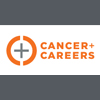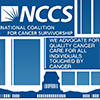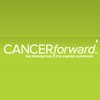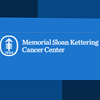How Can I Help?
One area that can be difficult knows how to help the survivor in your life. Here are a few pieces of advice on how to help and then a link to a more ‘professional’ advice. These are based on my own cancer experience and yours could (and probably will) be different
Caregivers
The best way you can help your survivor is by paying attention to their needs. Making sure that they get what they need- whether emotional support, food, rest, or entertainment. Try to think outside of the box and plan ahead based on what you know about your survivor. A cancer diagnosis does not change the core of a person. If they enjoyed working out before getting sick, they will still enjoy it after they may just have to tweak their work out- more pool exercises less 5Ks. If they enjoyed art before, you may need to find travel sized art supplies to take with you. The more ‘normal’ you can make life feel, the better. A good way to be able to spend more time with your survivor is to designate a Sound box person- someone who will be responsible for keeping others up to date, so you can focus on what matters!
Neighbors
It often comes as a surprise how helpful neighbors can be during a cancer journey. It can be as simple as sending them a card. Some great areas to think about is outside care- such as grass cutting or snow removal-, meal planning- pre made meals that can be frozen for later-, or help taking care of animals –walking dogs or picking up pet supplies. Just make sure to check in with the caregivers or with the sound box person (the representative for the caregiver) and make sure that there are no dietary restrictions or allergies. These are not only great neighborly things to do, they are helpful to both the survivor and the caregiver because it frees up time to take care of mental and physical health. Even little things like just checking in can make the biggest difference.
Friends/Family
Friends and family are the core of the survivors support circle. Now is the time to step up with meal preparations, cards, presents, calls, texts, whatever it is that you do reach out and show you care. However, since you will be the main people interacting with the survivor (besides the caregiver(s)) you need to play it off of them first. It can be really hard on a caregiver to be repeating the same things to everyone. The first step to being helpful is to determine where you lie in the closeness to the survivor. Step up and offer to be the sound box for the caregiver so they can spend more time helping the survivor. Whatever you do make sure you stay in the survivor’s life, I hated how many people dropped me after I was given my remission status even though I was far from well.

Acquaintances
When you find out someone you know but are not really close to has cancer it can often be confusing on what to do to help. The ways to help are often similar to the friends and family. However you contacted the survivor before should stay the same. If you work with the survivor, maybe get a group card or present together and show your support. My job made a donation jar for me and many professors that I did not have and knew only through my job donated to my fund. They also make a banner that everyone wrote kind words on. It meant so much to me that these people showed support for me when I needed it. All support is appreciated, you do not need to go see them in the hospital or step up as much as a friend or family member. Showing that you are thinking of them really means a lot but if it would make you uncomfortable think of how it will make the survivor feel.
Jobs
You have one of the most important ways to be helpful for a survivor. The best way is to make sure that they feel comfortable taking off work. If they are able to return to work, work with them! Modify their tasks so they can do them, accommodate their new needs, survivors are some of the best employees you will ever have. Even though they may miss a lot of sick time, most survivors really want to get back to normal. They really want to prove they can live their life like ‘normal.’ Be understanding. Most importantly DO NOT DISCRIMINATE against a survivor. I know it seems like common sense, but all jobs do it. You worry about sick time, insurance costs, etc, and all you are doing is making is harder for people who have already been dealt a shitty hand!
Healthcare Professionals
Doctors, nurses, staff, you are all in the perfect position to really help survivors. The first step is the REALLY LISTEN. When survivors have concerns, they are legitimate. Make sure that you spend the time to help with their concerns. It is said that on average a doctors spends about 8 minutes with a patient and in my experience it is a 45 minutes wait to spend less than 10 minutes with the doctor. During my treatment it was doctors and nurses who would not listen to me and who would talk to my mother instead of me. Knowing that someone is listening to us, respecting us and truly caring about how we feel and what we are going through is a big deal. You have the power to make a huge difference in their treatment and the general quality of their life.
Fellow Survivors
When you are also a survivor- whether you are also going through treatment or if you have been in remission for years- it may be weird to think about how you can help others, but it is very, very important. Knowing that someone else is going through/went through something similar to your own experience can be encouraging. The way you can help is just by being as available as you feel comfortable. You do not have to overexert yourself, just knowing someone cares and seeing someone else making it through their diagnosis can be a big help.
The Survivor
Survivor, you may think that all I am going to say here is just get better, well you are wrong. You are responsible for your own health and happiness. You have to tell health professionals how you are feeling and what you want. You have to tell your caregiver how much you can handle and what you want to do so they can relay it to the others. You have to accept help and aid when you need it. You have to take the time to get better and you have to accept that you may not be able to do everything you did before your diagnosis. You will need to accept your limitations- at least for awhile. You will need to love yourself and find the beauty and joy in your life. You have a big responsibility in this journey towards remission and survivorship.

Places You Can Help Survivors You Do Not Know
There are many sites out there where you can show that you care. Click the images below to visit these sites.
How to Help My Charity
My charity is the Ending Cancer in Our Generation Foundation. We are an online art community for anyone who has been affected by cancer. We annually award a scholarship to a cancer survivor and a grant to a cancer caregiver. There are three ways to really help my charity
1. Support our fundraising- participate in our online events, buy our merchandise, or donate in kind.
2. Spread the word- we need to make sure we are available to all survivors and caregivers out there
3. Join our community- we need anyone who has been affected by cancer to come together in our community and express yourself through your creative endeavors.
If you would like to know more about my charity please click on the logo below. We appreciate any and all support!

How to Help Jetty's Brain Book
I am one lone artist trying hard to make a difference in the world. I work too hard, sleep too little, stress too much, and generally do not take care of myself but knowing someone will find this website helpful is what has kept me going in redoing this site properly. It is my hope that one day this website and book will one day reach everyone. If you would like to help JBB, share this site with your friends, like us on Facebook, buy the book and share it with those who may need it. You can also donate to keep the site going by click the donate button below.

Caring is the first step
Show that you care about the survivor is the first step to making a real difference in the life of the survivor









